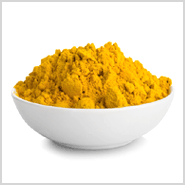The “Rosetta Stone” of Eastern and Western Medicine
The Big Picture on Eastern Medicine

The eastern systems of medicine are based in the holistic philosophy and consider the person as a whole rather than a complex system of molecules and organs, as defined by modern systems of medicine. The holistic philosophy considers the human being as a system, consisting of Mind, Body and Soul, which is capable of achieving optimal health and wellness by itself. Rather than treating the symptoms of a disease, it is more concerned about the effective elimination of the causes of disease.
Eastern systems of medicine consider each person as unique and treats the person rather than the disease. The holistic approach believes in the ability of the innate to achieve the optimal health and works to regain the natural system state of well being through personalized food habits and improved lifestyle.
Practitioners of Eastern Medicine are Everywhere
The increasing risks of life style disorders and ineffectiveness of modern systems of medicines in their prevention, have become a huge concern for the industrialized world. This makes the eastern systems of medicine like Siddha, Ayurveda, etc., more relevant and are gaining more importance in recent years as a system of wellness rather than a system of treatment.
As per the National Health Interview Survey, on the use of complementary health approaches in the US, about 8.4% of adults and 3.3% of children used chiropractic or osteopathic manipulation. The survey says that 9.5% of the US adult used Yoga as a practice for wellbeing, 8.0% used meditation and 6.9% used massage therapy. This shows the growing popularity of the eastern systems of medicine as an alternative or complement to the modern systems of medicine to achieve quality life and wellbeing.



